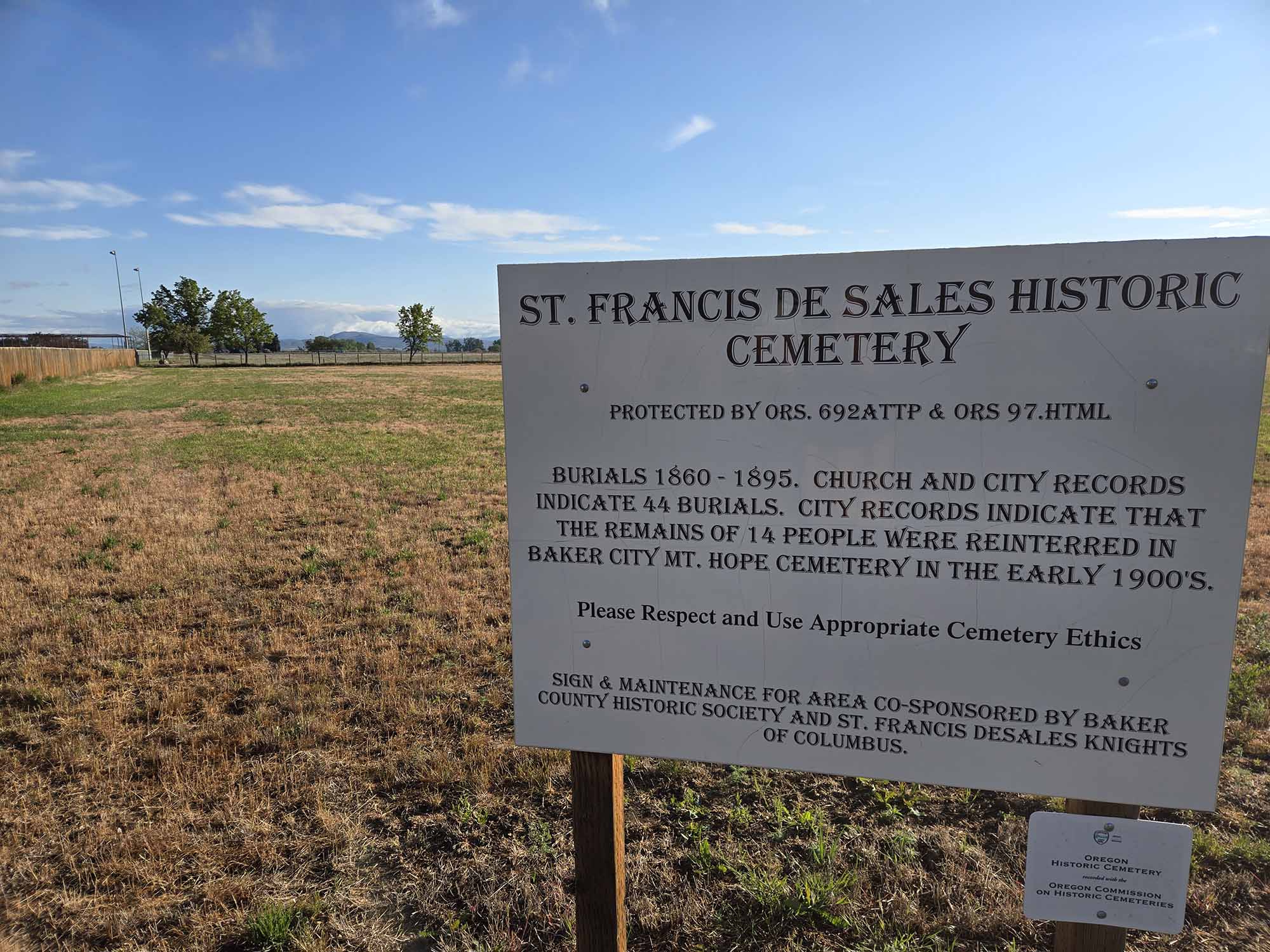Making it work for everyone
Published 12:59 pm Monday, December 7, 2015

- Making it work for everyone
Jobs for People with Disabilities: A Three-Part Series Starts Today
Trending
Changes are taking place daily for people with intellectual and developmental disabilities in Oregon, and for the agencies that serve them.
That change is motivated by the pending settlement of a class-action lawsuit that calls for moving people with disabilities out of sheltered workshops and integrating them into community employment.
The settlement and subsequent governor’s executive order requiring change have set in motion a massive statewide effort to accomplish that goal.
Trending
Oregon’s “Employment First” policy is based on the philosophy that if the state is going to provide assistance for its residents, employment should come first, says Robert Costello, one of two field service managers for Oregon’s Vocational Rehabilitation Department.
His service area includes half the state, including Baker and other Eastern Oregon counties.
Costello says his agency works to help potential employees overcome barriers to gaining and keeping a job.
The Employment First philosophy has been around for about 10 years, Costello says.
But the lawsuit settlement has set specific time lines, the first of which came on July 1.The executive order requires that no new jobs be offered in the sheltered workshop-training center environment after that date and state funding for those new jobs will end.
As the societal shift continues and workers retire or leave those work sites, that style of employment for people with intellectual and developmental disabilities eventually will be eliminated, Costello said.
But there is no definite closure deadline for sheltered workshops.
An array of acronyms is used to describe the agencies and the positions within them designed to help find or create employment for people with disabilities and to provide job training and coaching to help them succeed.
Gene Button, executive director of Step Forward Activities in Baker City, says his agency is striving to meet the goals of the executive order issued in 2013 as a result of the lawsuit, which is expected to be settled this month.
And that leaves Step Forward and many of its clients feeling a bit unsettled.
“We’ve been working for 25 years to reinforce the fact that people with disabilities have a right of choice,” Button said. “That right of choice is being taken away and they don’t want to go out to work in the community.”
Established in 1976, the nonprofit Step Forward has grown to an agency that supports 68 full-time and 15 part-time employees.
Those employees serve 48 program participants with varying degrees of disability who live in four group homes housing five people each in the community and who work in the vocational training center at 3720 10th St.
There also are 27 Step Forward employees serving nine people who live in two group homes and work at a vocational training center at John Day, Button said.
“Our bread and butter is plastic bags – trash can bags, liners – if it’s a bag, we’ve got it,” says Button, who joined Step Forward as executive director in 1991.
Workers make the yellow bags used to collect trash along Oregon highways and other bags that line trash cans.
The Step Forward employees also produce animal refuse bags that are placed in dispensers through contracts at state, county and city parks and at highway rest areas.
And they maintain vending machines at 27 locations in the community, including the Baker YMCA, Natural Structures, Ash Grove Cement, Marvin Wood Products, Behlen and the Courthouse.
Step Forward also sells the same products offered in the vending machines at wholesale prices with minimum markup to various businesses in the community. Anyone can order from the wide array of inventory on hand, and have the products delivered free that same day, says Angie Sullivan, who directs the vending department workers.
And the agency is finalizing a state contract to provide hand soaps and lotions in dispensers for cities, counties, state parks and prisons, Button said.
Most Step Forward workers earn Oregon’s minimum wage of $9.25 per hour or more, Button said.
The agency pays $3 million in wages and spends $1 million in local purchases. It also contributes to community programs such as Baker High School cheerleaders, FFA and Little League.
“We’re one of the best kept secrets in Baker County and one of the largest contributors,” Button said.
He expects Step Forward to be able to continue to operate on a scaled-down basis as changes are implemented.
Step Forward was awarded a one-year grant of $62,500 to help accommodate the changes. That funding was used to hire Pamela Roan.
She recently became certified as a support professional for Step Forward Activities. Roan is one of fewer than 100 people statewide who have been trained and tested to qualify for the position.
“It’s kind of a brand-new testing they have to make sure people who are doing this are trained proficiently,” Roan said.
“I finished and I passed,” she says proudly of the three-hour test.
Now the 57-year-old Roan is off to do what her job title indicates: Support her clients in seeking employment.
She uses her connections made in her years working as a certified veterinary technician for two veterinary clinics in Baker City and as the office manager for the Baker County Parole and Probation Office to connect clients with jobs. Her past employment history also includes working for training and placement services in Idaho and for the Epilepsy League, which served people with disabilities.
And she networks with others such as Janie Radinovich-Brose, the Baker School District’s Youth Transition Program (YTP) specialist, and Donna Lowery, the district’s YTP specialist serving Union County. They also are charged with finding community employment for students.
Amy Powell, who worked for seven years as a YTP specialist with the Baker School District, now is employed at New Directions Northwest where she is contracted through Baker County’s Developmental Disabilities Program to develop jobs and provide job coaching for people with mental health barriers to employment.
“We believe everyone can work,” Powell says, but she sympathizes with Step Forward clients who are happy working in the workshop/training center.
“For the people who have been there for so long and are happy there … have we given them something or taken something away?” she asks.
But as the mother of a son who has autism, Powell realizes that younger people have a different attitude about work.
Her son, Brody Powell, will graduate this year with a modified diploma, she says proudly.
“Our younger generation doesn’t want to be at Step Forward all day five days a week,” she says.
And the state is putting “an incredible amount of money” into giving them other options, Powell said.
“For some it’s going to be great and life-changing,” she said. “I was concerned because of the blanket ruling. The fact that it does work for some keeps us motivated.”
Lon Thornburg, one of eight transition network facilitators (TNFs) serving the state, says the Employment First initiative aims to change the way people look at employment opportunities for people with intellectual and developmental disabilities.
“We want to see competitive and integrated employment for those who choose to work,” he said.
On the other hand, he offers this word of comfort for those who are leery of the impact the program might have on some of the workers.
“Nobody’s being forced to do something they don’t want to do,” he said.
They will be given an opportunity and information to help them make an informed choice, he said.
See more in Monday’s issue of the Baker City Herald.
COMING WEDNESDAY:
Meet some of Baker City’s workers and learn how they found their jobs








